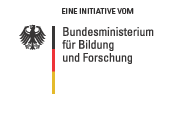Alexander Knoll: Rabbits in the shower
-
 <ic:message key='Bild vergrößern' />
<ic:message key='Bild vergrößern' />
- 54 year-old Alexander Knoll wants to make BioGenes a world leader in HCP assays. Quelle: BioGenes
23.09.2011 -
Alexander Knoll was born in 1957 in Moscow. A year later the family moved to Dresden, and then to Berlin. Like his father, he studied chemistry, but the young Knoll decided against a prestigious position at the university, and opted instead for the Biotechnology Research Centre in Stralau. As early as 1992, the father of two jumped into the business deep end, and founded BioGenes. “We were scared to death,” he says today. But he also knew: “One of my strengths is my conviction.” And with this trait, Knoll was able to convince the banks, the sponsors, and even his staff of his vision. 25 years later, company growth is in the double-digit range, and to this day he’s still not fond of wearing a suit.
Back when Alexander Knoll spent his summers in Sochi, Russia, with relatives of his mother, the sun-scorched days were filled with “absolute adventure” for the student. Today, the breaks are shorter, and he’s more likely to head to the Alps than the Black Sea. But the adventures never stopped for the 54-year-old. Knoll wants to make his company BioGenes a global market leader for quality assurance assays. At this time, the kits made by the firm in Berlin, which account for around a third of turnover of approximately 2.5 million euros, are of great interest in particular – but not exclusively – for the pharmaceutical industry. The majority of profits are generated by tailor-made antibodies, but it’s the assays side of business that’s really beginning to boom. The businessman Knoll is not one to miss this opportunity. “We’re swinging fully around.”
Running away from the comfort zone
Nothing ventured, nothing gained. In Knoll’s case, this attitude could well have been inherited. Even his grandfather crossed boundaries, albeit against his will. As an aircraft engineer, he was among those German specialists to be forcibly transported to the Soviet Union following the war. Alexander Knoll's father did not find the situation easy. As a teenager, the younger Knoll eventually left the town allocated to his family and went to Moscow. On his own initiative, he became the first East German citizen to apply for a chemistry degree at the elite Moscow State University. Not unexpectedly, he was arrested. Not much later, however, he was indeed accepted into the institution. At some point during his studies, he met his wife; the Knolls eventually became one of the first German-Russian married couples in the GDR. Alexander was just a year old. And although he says he was “very proud” of his headstrong father, he had a strong sense of how hard it could be for a boy who did not belong to any fraternal socialist country, neither large nor small.
| More on biotechnologie.de |
| Funded Project: 32 bioreactors in the smallest space |
Between German-Soviet chairs
And thus, he usually found himself sitting on the fence, both in the Russian garrison school in Dresden and the “Graues Kloster”, a boarding school for the GDR elite in East Berlin. “I was an outsider.” Today, Knoll says that he sees restrictions as challenges. The young Knoll found opportunities for development, even in the full-on socialism of the period. “As well-developed socialist personalities, we saw everything as open to us,” he says. The shortage economy firstly gives way to a calming fatalism: “Somehow, that works out.” Secondly, to versatility. “We could be laying tiles one day and carrying out highly innovative syntheses the next.” After the lurch into capitalism, both of these skills came in handy for Knoll.
The laboratory in the 1992-founded BioGenes was laid with carpet, and the polyclonal antibodies were produced in rabbits that lived in the shower cubicle. “My partner Sergei Ovodov and I, we worked like animals,” says Knoll today. They held their heads above water with analysis jobs, while writing grant applications and – time permitting – developing their own technology platform for antibody cultivation on the side. Their first tax accountant was honest: “He told me that the company would survive less than six months,” says Knoll. “I don’t think so, I told him.”
No more toiling until midnight
By his own admission, he is not completely resistant to advice. “You need an agent provocateur on your side, so that the escapades don’t get out of hand.” These days, nobody at the firm has to work until the early hours, but there’s nevertheless an excess of energy. In the meantime, this energy is being creatively channelled. Almost all of the photos on the BioGenes website are taken by Knolls – an ambitious hobby photographer. Or the energy is dissipated in more regular means. It’s twenty kilometres from Knoll’s house to the office, meaning time to pedal and to reflect on the company’s next steps. “I want to complete BioGenes’ growth into the world's leading specialist in quality assurance assays.” To all extents and purposes, this race is already won. The first hit on Google after searching for ‘HCP assay’: BioGenes.
Author: Christoph Mayerl




